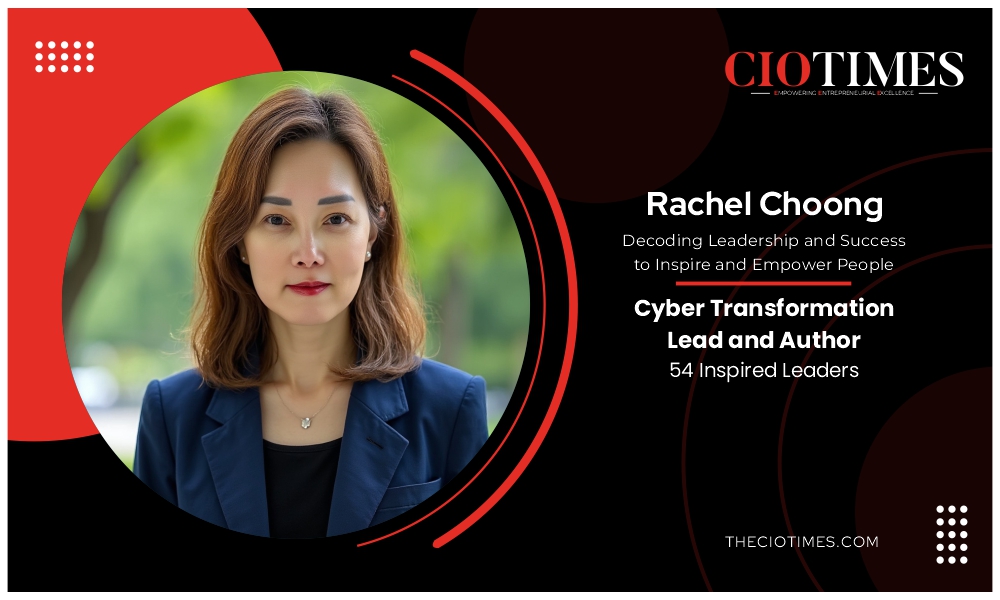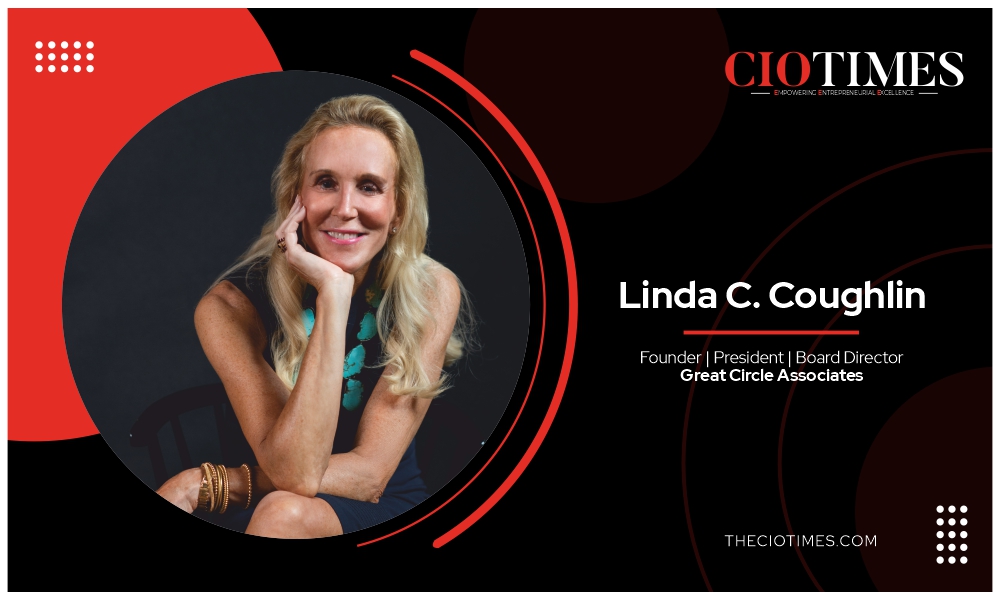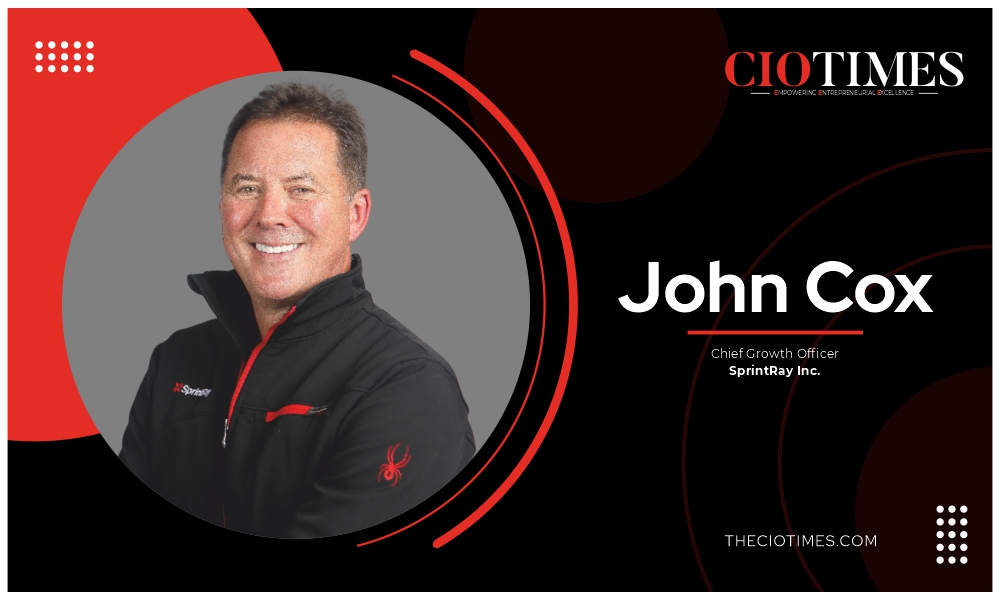Rachel Choong is a highly accomplished Technical Professional with over 25 years of expertise in Program and Project Management. Throughout her career, she has consistently delivered cutting-edge solutions for a diverse portfolio of clients, spearheading multi-million-dollar projects that have propelled businesses forward in their respective industries.
As a Subject Matter Expert in project management, Rachel is adept at requirements gathering, risk mitigation, resource allocation, project planning, and establishing critical milestones for success. Her ability to navigate complex programs has earned her recognition from executive leaders, including the CISO, who have entrusted her with business-critical projects that enhance security and save companies millions by mitigating system vulnerabilities and information breaches.
Beyond her corporate achievements, Rachel is a published author of “54 Inspired Leaders,” where she interviewed top executives to uncover insights on leadership, resilience, and personal growth, inspiring professionals to pursue success with renewed determination.
The Inspiring Journey
Best known for her ability to turn around troubled projects and deliver the desired outcomes, Rachel has built a distinguished career managing complex projects across cybersecurity, technology implementation, and digital transformation.
Her entry into this field came somewhat serendipitously – after graduating with an IT degree, Rachel’s first position happened to be in consulting and project management. What began as a chance quickly developed into a passion as she discovered her natural aptitude for coordinating complex technical initiatives and delivering results.
She excels at taking on challenging, high-stakes projects and delivering them on budget, ahead of schedule, without compromising quality. Rachel’s talent for meticulous risk assessment, resource allocation, and strategic planning has repeatedly transformed potential project failures into notable successes.
What has been most rewarding in her journey is watching her responsibilities grow naturally over time. “I still remember my first project with a modest budget compared to the multi-million-dollar programs I now lead. With each new challenge, I have pushed myself to deliver faster, while managing greater complexity — not because it was expected, but because I thrived under pressure and found deep satisfaction in exceeding expectations together with my teams,” says Rachel.
At Coles, she implemented critical security infrastructure that protected sensitive customer data while enabling technological innovation. At NBN Co, Rachel delivered an Access Management solution that protected Australia’s broadband network by implementing ACSC Essential Eight mitigation strategies.
Throughout her career at NAB, Telstra, and other organizations, she has consistently turned around troubled projects, often completing the work in a fraction of the expected time — such as delivering a major security project at NAB in just three months against a projected one-year timeline.
Rachel’s exceptional work has earned multiple awards, including the Telstra CEO Awards for SmartHome, the CIO Award for the Block Charging project, and the OSS Inventory Solution Centres Award for NBN. She has also received nominations for the Director’s Choice Award and NAB’s Value – WIN Together recognition.
“To me, success is measured not only by the quality level expected by customers and company but also by delivering ahead of schedule and under budget. I have a rare combination of technical expertise, leadership skills, emotional intelligence, and ability to navigate complex organizational challenges that have made me the go-to professional for business-critical programs that enhance security and save organizations millions in potential damages,” shares Rachel.
Unraveling the Author in Her
The inspiration for the book “54 Inspired Leaders,” came from an unexpected source—Rachel’s husband. He would often return home from business dinners and share inspiring stories about the leaders he had met. Listening to these accounts of resilience, wisdom, and achievement, Rachel realized these powerful stories deserved a broader audience. She thought: if these stories could brighten her evenings and change her perspective, what might they do for others who need encouragement?
That curiosity led her to ask her husband if she could interview his friends. They embraced the idea, introducing her to even more leaders eager to share their journeys. Rachel started publishing these interviews on LinkedIn, simply wanting to spread inspiration and wisdom.
Soon, her interviewees suggested compiling these stories into a book. That’s when ‘54 Inspired Leaders’ was born. At its core, this book is about learning from remarkable leaders, finding motivation in their experiences, and embracing the lessons that drive success.
The Perils of Being a First-Time Author
As a senior cybersecurity professional managing critical projects, finding time to interview 54 leaders, transcribe conversations, organize content, draw out the key messages, and assemble the book was Rachel’s biggest challenge. Arranging meetings with busy high-level executives across various industries, including C-suite leaders, required persistent networking and considerable scheduling flexibility. She overcame this by being extremely organized with her calendar and remaining flexible to accommodate these leaders’ busy schedules, sometimes conducting interviews late evenings.
While she possesses exceptional listening skills that have served her well throughout her career, translating hours of nuanced conversations into concise, impactful written content presented a different kind of challenge. Rachel discovered that the same deep listening that made her effective in project management also generated an abundance of rich material, almost too much. To overcome this, she relied on her common sense to determine which insights to retain.
“I asked myself, ‘What will truly inspire readers?’ and ‘What unique perspective does this leader offer?’ This filtering process helped me distill the essence, without losing the authentic voice of each contributor,” she shares.
As a first-time author focused on leadership and inspiration, when her primary expertise is in cybersecurity rather than publishing, navigating the book production process was a steep learning curve. From editing to design to distribution, Rachel found herself in unfamiliar territory. She approached this challenge the same way she tackled complex technical projects — by breaking it down into manageable phases and seeking expertise when needed. After publishing, balancing “subtle positioning” while effectively promoting the book required careful attention to stay true to her authentic voice while ensuring the positive messages reached those who could benefit.
The most unexpected challenge was transforming intimate conversations into structured content that would truly inspire readers. What worked in spoken conversation did not always translate to the page. Rachel overcame this by applying the same methodical approach she uses in project management—organizing content thematically, identifying patterns across different interviews, and creating a coherent narrative that preserved the unique wisdom each leader shared.
“I personally benefited from the learnings and inspirations from these leaders that I had the privilege to interview,” she says.
Creating a Legacy
In a world often filled with negative headlines, Rachel wanted to create something different — a collection of authentic voices that could inspire others to keep moving forward, even on days when getting out of bed feels impossible.
What drives her is knowing that somewhere, someone might pick up this book when they are struggling and find the exact words they need. As she was taught as a child, doing good deeds and spreading positive words creates ripples far beyond what we can see.
Rachel’s greatest hope is that “54 Inspired Leaders” serves as a reminder that we all face challenges, but with the right mindset and support, we can take small steps toward seemingly impossible dreams. The wisdom these remarkable leaders have shared is not just about success — it is about resilience, purpose, and finding light during dark times.
Philosophies Mirroring Life
Throughout “54 Inspired Leaders,” several core philosophies that have guided both Rachel’s personal life and her 25-year career in technology and cybersecurity come to light:
- Optimism as a transformative force: Her book consistently emphasizes that positivity can help people overcome obstacles. As she states directly: “The goal of this book is to remind others to be positive in life and be confident that eventually, good days will come”. This mirrors her approach to complex programs, where maintaining optimism while facing technical challenges has been crucial to her success in delivering solutions ahead of schedule.
- The power of connection and sharing wisdom: By bringing together leaders from various backgrounds and fields, Rachel’s book embodies her belief that we can learn valuable lessons from people with different life experiences. Throughout her career managing diverse teams across organizations like Telstra, NAB, and Coles, she has seen how shared knowledge accelerates problem-solving. The book creates a platform where successful leaders share insights with others who might not otherwise have access to such mentorship.
- Service to others: What inspires her is to give others a second chance in life. Rachel’s personal philosophy is centered on helping others and lifting them up. This value drives both her book project and her professional approach, where she focuses on implementing solutions that protect organizations and ultimately the people they serve.
- Resilience through difficult times: Many of the featured leaders discuss overcoming challenges, reinforcing Rachel’s belief that greatness often begins with a small spark of positivity or a shift in perspective. In her cybersecurity work, resilience is not just a personal quality but a critical system attribute — the ability to withstand attacks and recover quickly. Both the technical systems she has implemented and the leadership stories she has collected demonstrate that with persistence, we can overcome seemingly insurmountable obstacles.
These philosophies are not separate from Rachel’s technical expertise but rather inform how she applies it – focusing on solutions that empower people, building resilient systems, and maintaining optimism even when facing complex challenges.
In her book, one of the interviewees – Head of Technology Operations said, “I had to build higher and deeper fences, better netting for the trees, and I got better at defense over many seasons”.
What struck Rachel was how perfectly this paralleled modern cybersecurity: “Life was a bit like cybersecurity: defend against attackers, always building higher, stronger and deeper fences”.
In our security world, we often focus on sophisticated tools and frameworks, but his story reminds us of the fundamentals – persistent improvement of our defenses, learning from each breach that we read about in media, and understanding that security is never ‘done’,” she explains.
Nurturing High-performing Teams
Throughout her 25 years leading technology and cybersecurity projects, Rachel has developed a framework for building teams that consistently exceed expectations in high-pressure environments:
- Foster collaboration with open communication where team members feel empowered to contribute ideas and raise concerns. This creates an environment where everyone understands our collective goals and their specific role in achieving them — critical for navigating the rapid changes in competitive industries.
- Embrace challenges as growth opportunities. Rather than shielding her teams from difficult problems, she encourages them to tackle challenges head-on. She provides guidance without unnecessary intervention, which builds their problem-solving capabilities faster than any formal training could.
- Lead with respect. She found that teams who feel genuinely respected are more willing to go the extra mile and support each other through difficult phases and with empathy.
Technology – Transforming Industries
Technology has fundamentally transformed how organizations across industries operate by revolutionizing our relationship with data. In every sector Rachel has worked in – from telecommunications to healthcare to banking – what was once physical interaction has been digitized, making data the primary product and currency of business.
The most dramatic transformation, she points out, is visible in banking, where most customer interactions now occur through digital transfers, completely reshaping the customer experience and operational model. This shift has transformed not just how services are delivered but the very nature of risk and competitive advantage.
This digital transformation has elevated cybersecurity from a technical concern to a strategic business imperative. Organizations must now manage an integrated ecosystem of people, processes, and technology to secure their data assets. For Rachel, as a project manager in cybersecurity, understanding all three components has become essential — a significant evolution from when technology management was compartmentalized.
“Perhaps most transformative is how security has emerged as a key business differentiator. Organizations that prioritize cybersecurity build greater trust with customers, partners, and regulators, while those that neglect it risk business continuity. The transformation is complete: security is no longer just about protecting data – it is now about ensuring business resilience, maintaining stakeholder trust, and ultimately, organizational survival in a technology-driven landscape,” she says.
Defining Trends in the Industry
There are two trends – artificial intelligence (AI) and quantum computing.
The rise of AI agents represents the most transformative trend reshaping the technology landscape today. As highlighted by industry leaders, these AI agents are fundamentally changing how we interact with software, potentially disrupting traditional cloud-based SaaS applications.
Drawing from her 25+ years in cybersecurity and project delivery, Rachel sees four key impacts of this trend:
- Productivity transformation through automation of routine tasks, allowing teams to focus on strategic initiatives.
- Seamless data integration across previously siloed systems, providing comprehensive insights without managing multiple applications.
- Democratized technology access through conversational interfaces that eliminate steep learning curves.
- Personalization at an unprecedented scale that adapts to individual users’ specific needs and preferences.
This shift is accelerating rapidly across industries, with early adopters already gaining significant competitive advantages. Organizations that embrace this trend strategically will position themselves for future success.
However, the security implications cannot be overlooked. The evolution of AI agents demands corresponding advances in:
- Privileged access management
- Comprehensive monitoring systems
- Strong authentication protocols
- Clear data governance frameworks
- Regular security assessments
Looking ahead to five years, organizations that successfully balance innovation with robust security measures will thrive in this AI-driven future. The key will be implementing cutting-edge solutions with security integrated from the start — not added as an afterthought — a principle Rachel has championed throughout her career implementing major technology transformations.
Quantum computing poses a significant cybersecurity threat by potentially breaking current encryption methods that protect sensitive data and communications. This may lead to massive data breaches exposing sensitive information. While quantum computing technology is still developing, experts believe quantum computers capable of breaking encryption will emerge in the coming years. Organizations need to mitigate by taking proactive security measures before quantum threats fully materialize. They should begin planning and implementing security measures now, particularly for sensitive data with a 10 to 15-year lifespan.
Advice for Aspiring Professionals
“Make learning your competitive advantage – The cyber landscape evolves constantly, making continuous learning non-negotiable. Dedicate time each week to expand your knowledge through industry certifications, online courses, technical blogs, and reading articles. In cybersecurity particularly, yesterday’s solutions often do not address today’s threats. Learn to view security incidents not as failures but as valuable learning opportunities that strengthen your defenses,” advises Rachel.
She further says, “Build meaningful connections – In my journey interviewing leaders for “54 Inspired Leaders”, I was struck by Michael Lappen’s approach to mentorship. He shared, “You have to give to get. By offering to help, his mentors would observe what he was doing, offer advice to improve, and they would discuss challenges”. This wisdom applies perfectly to cybersecurity. Offer assistance or share your knowledge through write-ups. The cybersecurity community values those who contribute before asking for favors.”
The Next Milestone
Writing “54 Inspired Leaders” opened Rachel’s eyes to something quite special — the power of capturing wisdom that might otherwise remain hidden in private conversations. Looking ahead to the next five years, she is drawn to expanding beyond her cybersecurity roots. She sees herself curating more leadership stories, perhaps through a second book that dives even deeper into what makes exceptional leaders tick.
Rachel’s goal is not to become famous but to build meaningful connections that open doors to unexpected collaborations. LinkedIn has become her garden for growing these possibilities — planting seeds of inspiration weekly. The next chapter of her professional life will be about leveraging the credibility the book has built while staying true to why she wrote it — to help others find their spark of motivation when they need it most.
Through writing, she will continue to showcase unique leadership skills and apply them in new professional contexts beyond just authorship. She is leveraging her strengths to do good deeds.
“Few people can interview dozens of leaders and identify the common threads while appreciating the unique qualities of each and find connections across different leadership styles and industries. I am not just collecting quotes – I am engaging in a thoughtful dialogue with these leaders and inviting readers into that conversation. These same skills that made my book unique will carry forward into whatever new leadership roles and projects I pursue, whether through further writing, speaking engagements, or entirely new professional opportunities,” she explains.
Lessons from the Leader’s Journey
Throughout her development, Rachel has learned that effective leadership starts with deep listening. Leadership is not about having all the answers but about creating environments where the best solutions can emerge collectively if we understand others’ perspectives before offering guidance.
Leadership is also about putting the team’s growth and success ahead of personal recognition. It is about acknowledging each other’s contributions rather than one’s own existence.
“I aspire to leave a legacy of empowerment – helping people discover capabilities within themselves they didn’t know existed. I find deep fulfillment when my team approaches me and says: “Rachel, I never thought we could deliver that”, they claim with new confidence,” she concludes.
Look into her exclusive digital magazine




